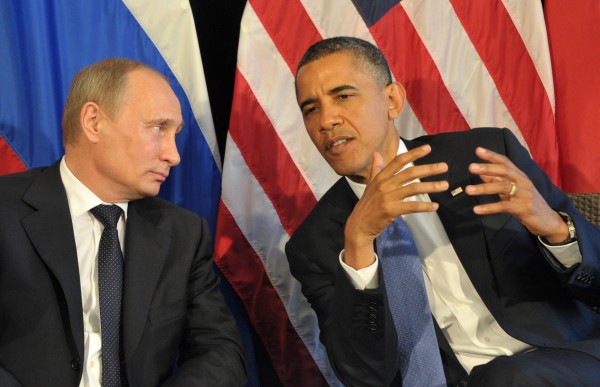To Push Forward U.S. Agenda, Obama Must Attend Winter Games
January 30, 2014

Every four years, the world gathers to watch athletes compete in the Olympic Winter Games, and this year will be no exception. Starting Feb. 6, competitors will meet for the Winter Olympics in Sochi, Russia and face each other in their respective sports over the course of 16 days before returning home, hopefully with a medal or two in their bags.
However, the 22nd Winter Olympics will be slightly different—if the events leading up to it are anything to go by. Commentators around the world have used this competition to voice their disapproval of Russia’s policies concerning international issues and discrimination against minorities. This international debate took an unexpected turn when President Barack Obama, citing a busy schedule, stated that neither he, the first lady nor the vice president would attend the Games this year. If this is indeed the case, it will be the first time since 2000 that the U.S. delegation will not feature a U.S. president, first lady or vice president.
The relationship between Russia and the U.S. is one that is rocky at best, and it is extremely important that a major government figure be in attendance at this year’s Olympics. Even though NBC News reported that Alexander Zhukov, the head of Russian Olympic Committee, was “not really concerned” about the president’s refusal to come, not attending the Games would mean skipping out on a great opportunity to improve the USA’s image abroad and show support to victims of discrimination in Russia. In fact, since enacting a law preventing homosexual propaganda, cases of violence against the LGBT by far-right groups have soared. Moreover, a mere 16 percent of the population in Russia thinks homosexuality should be accepted by society, according to the Washington Post.
In order to promote acceptance and diversity, naming a U.S. delegation led by three openly gay athletes, tennis legend Billie Jean King, Olympic hockey medalist Caitlin Cahow and figure skating champion Billy Boitano, is a great political move. The president’s disapproval of Russia’s anti-gay laws is clear, and even though the White House did not openly mention said laws, President Obama’s message will be well carried by these exceptional athletes. Still, I believe that the president’s presence with the delegation would empower his message. In a country with a biased media and rampant propaganda, President Obama has the opportunity to speak without filter and end his message with an exclamation mark.
A presidential visit would also improve the opinion of the U.S. in Russia. According to the Pew Research Center, favorable opinion has been slowly decreasing in the last four years, currently standing at a low 51 percent. For the second half of 2013, however, both countries have reached compromises on Syria and terrorism that seemed to indicate a positive trend in their bilateral relationship. If President Obama were to attend the Olympics, he would show Russia that he is committed to a peaceful and diplomatic approach. Additionally, such a visit might help suppress the memory of Obama and Putin’s awkward meeting in June 2013, where they avoided eye contact and disagreed on virtually everything.
Finally, the Sochi Olympics are held less than two months after a wave of terrorist attacks in Volgograd, one of the largest cities in the region, by Chechen Islamic terrorists. In addition to showing a common front against terrorism and establishing the U.S. not only as a friend of Russia but as a friend of the Russian people, President Obama has the opportunity to make the Olympic Games a safer place for all by simply attending. Not only would his presence be an example of empathy for the victims of discrimination and for those suffering from terrorism, but in a time when there are very real terrorist threats near and in Sochi, and when there are less U.S. security experts attending the Games than there have been before, the presence of an important U.S. state official would actually lead to higher security for everybody throughout the Games.
Regardless of the Olympics, it is hard to forget that U.S.-Russia relations have always been a tricky matter. Many topics are sources of tension, from Edward Snowden to LGBT discrimination to Syria—however, refusing to meet one’s counterpart will certainly not lead to viable and peaceful solutions. Today is a moment when Obama can think about his legacy: does he want to be remembered as the president who turned the US-RU relationship sour again? I do not think so. This is an opportunity for Obama to set his problems aside to focus on the bigger picture and work towards a more peaceful and accepting world, the kind of world a Nobel Peace Prize winner should aspire to.









